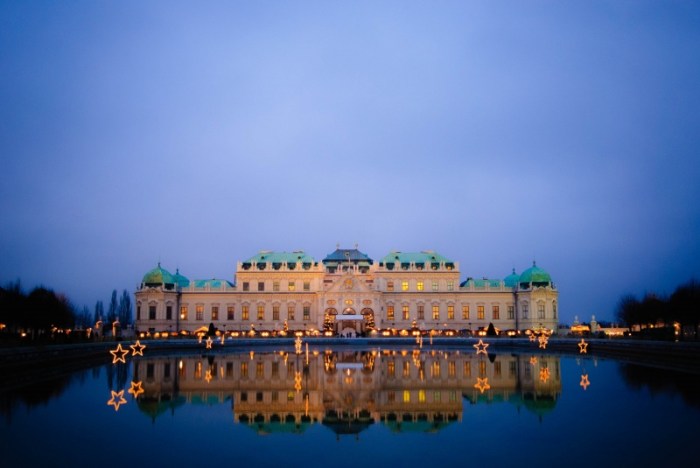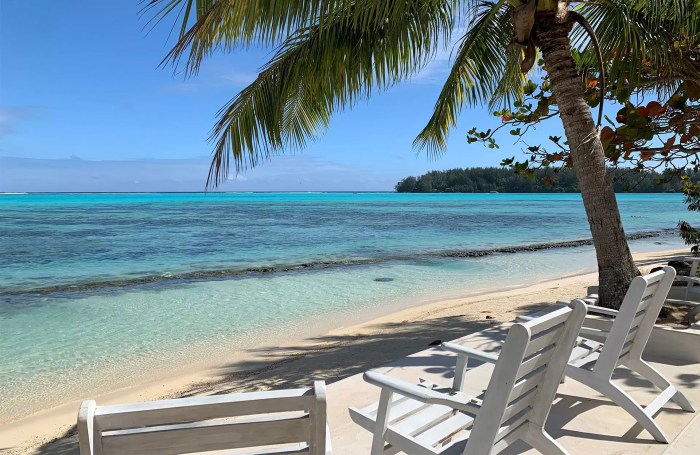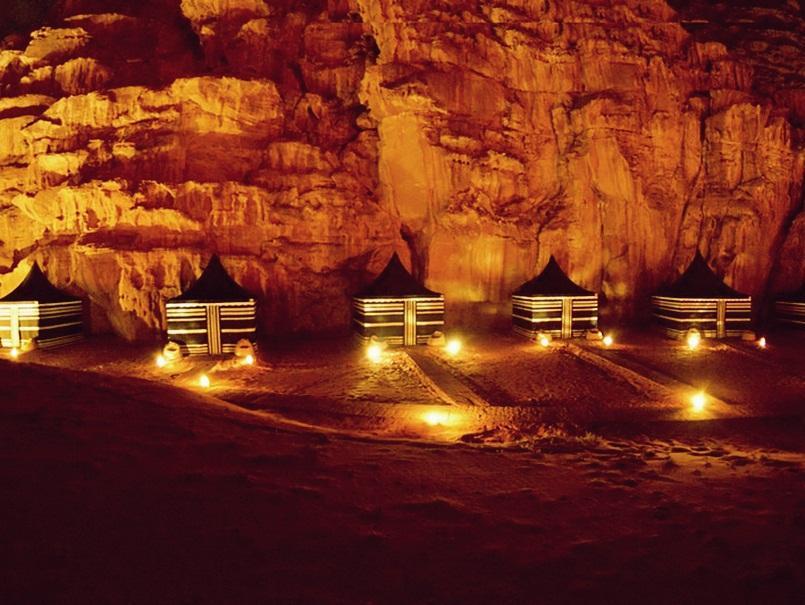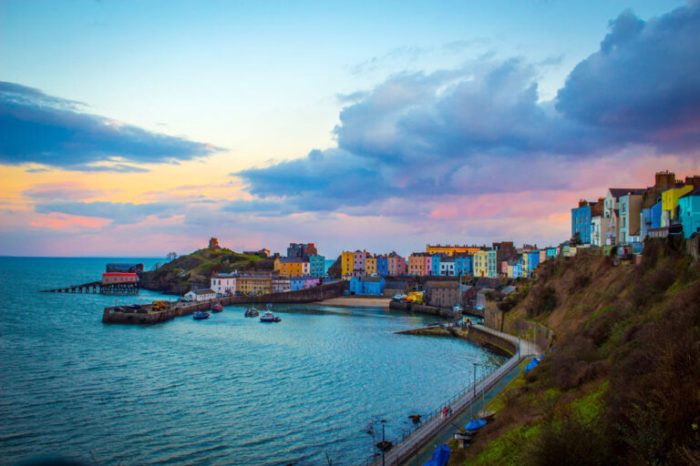When contemplating a European adventure, the question of “Is Vienna worth a visit?” inevitably arises. This captivating city, steeped in history, culture, and charm, beckons travelers with its imperial grandeur, vibrant arts scene, and culinary delights. Join us as we delve into Vienna’s multifaceted tapestry to uncover its hidden gems and determine if it deserves a place on your travel itinerary.
From the majestic Schönbrunn Palace to the vibrant Prater amusement park, Vienna offers a plethora of experiences that cater to every traveler’s desires. Whether you’re an art enthusiast, a history buff, or simply seeking a taste of Viennese elegance, this city has something to captivate your senses.
Historical Significance
Vienna’s historical significance is deeply intertwined with its strategic location in the heart of Europe. Throughout centuries, it has been a pivotal hub for trade, culture, and political power.
The city’s roots can be traced back to the Celtic and Roman eras, but it truly flourished under the Habsburg dynasty, which ruled Austria for over six centuries.
Habsburg Dynasty
The Habsburgs transformed Vienna into a magnificent imperial capital, patronizing the arts and sciences. They also played a crucial role in European history, leading the Holy Roman Empire and shaping the course of the Thirty Years’ War.
Notable Historical Events
Vienna has witnessed numerous pivotal historical events. In 1529, it successfully resisted a siege by the Ottoman Turks, marking a turning point in European history.
The city was also the birthplace of psychoanalysis by Sigmund Freud and the setting for the Congress of Vienna in 1814-15, which redrew the map of Europe after the Napoleonic Wars.
Vienna is a beautiful city with a rich history and culture, making it a popular destination for tourists. Whether you’re interested in art, music, or architecture, there’s something for everyone in Vienna. If you’re looking for a more unique experience, consider staying in one of the many boutique hotels london west end . These hotels offer a more intimate and personalized experience than traditional hotels, and they’re often located in charming neighborhoods.
Whether you’re staying in a grand hotel or a cozy boutique hotel, Vienna is a city that will surely leave a lasting impression.
Historical Figures
Vienna has been home to many influential historical figures, including:
- Wolfgang Amadeus Mozart, the renowned composer
- Empress Maria Theresa, a powerful and enlightened ruler
- Emperor Franz Joseph I, who reigned for over 68 years
- Adolf Hitler, who was born in Braunau am Inn, Austria
Cultural Attractions
Vienna, Austria, is a renowned cultural hub with a rich artistic heritage. The city is home to numerous museums, art galleries, and architectural masterpieces that attract art enthusiasts and history buffs alike. Vienna’s vibrant music and theater scene further adds to its cultural appeal, making it a must-visit destination for anyone seeking a cultural immersion.
The cultural attractions in Vienna are diverse and cater to a wide range of interests. From exploring the grandeur of historical palaces to delving into the works of renowned artists, there is something for everyone to discover.
Museums and Art Galleries
Vienna is home to some of the world’s most renowned museums and art galleries. The Kunsthistorisches Museum houses a vast collection of paintings, sculptures, and decorative arts from the Middle Ages to the 18th century. The Leopold Museum focuses on Austrian art from the 19th and 20th centuries, showcasing works by Gustav Klimt, Egon Schiele, and Oskar Kokoschka.
The Albertina Museum is known for its extensive collection of prints and drawings, including masterpieces by Albrecht Dürer, Rembrandt, and Picasso. The Museum of Modern Art (MUMOK) exhibits contemporary art from the 20th and 21st centuries, featuring works by Andy Warhol, Roy Lichtenstein, and Yves Klein.
Architectural Masterpieces and Landmarks
Vienna’s architectural heritage is equally impressive, with stunning palaces, churches, and public buildings that showcase different architectural styles. The Hofburg Palace, the former imperial residence of the Habsburg dynasty, is a vast complex that houses museums, state apartments, and the Spanish Riding School.
St. Stephen’s Cathedral is a Gothic masterpiece with a towering spire that dominates the city skyline. The Schönbrunn Palace, a UNESCO World Heritage Site, is a magnificent Baroque palace surrounded by sprawling gardens and a zoo.
The Hundertwasserhaus, designed by Friedensreich Hundertwasser, is a unique and colorful residential building that has become a landmark in Vienna.
Music and Theater Scene
Vienna has a long and rich musical tradition, and is home to the Vienna State Opera, one of the most prestigious opera houses in the world. The Vienna Philharmonic Orchestra, renowned for its New Year’s Concert, is another cultural icon.
The city also has a thriving theater scene, with numerous theaters offering a wide range of productions, from classical plays to contemporary works. The Burgtheater, the national theater of Austria, is one of the most prestigious theaters in the German-speaking world.
Culinary Delights
Vienna offers a diverse culinary experience, renowned for its delectable pastries, traditional dishes, and the ubiquitous coffee culture.The Viennese coffee house is an institution, serving as a meeting place for intellectuals, artists, and locals. Here, visitors can indulge in the Viennese ritual of “kaffee und kuchen,” enjoying a cup of expertly brewed coffee accompanied by a slice of exquisite cake or pastry.
Viennese Pastries and Desserts
Vienna’s pastry shops are a sight to behold, showcasing an array of tempting creations. From the classic Sachertorte, a rich chocolate cake with apricot jam, to the delicate Apfelstrudel, an apple-filled pastry, there is a treat to satisfy every sweet tooth.
Traditional Viennese Dishes
Beyond its pastries, Vienna’s cuisine offers a range of hearty and flavorful dishes. Wiener Schnitzel, a breaded and fried veal cutlet, is a beloved national dish. Other traditional favorites include Tafelspitz, boiled beef served with horseradish and chives, and Gulasch, a paprika-spiced beef stew.
Natural Beauty

Vienna boasts an abundance of green spaces and parks, offering respite from the city’s urban landscape. The iconic Stadtpark, located in the heart of the city, features manicured gardens, a serene pond, and the famous gilded Johann Strauss monument.
Beyond the city center, the Vienna Woods, a vast expanse of lush forests, hills, and vineyards, is easily accessible by public transportation. The woods provide ample opportunities for hiking, biking, and horseback riding, as well as scenic drives along the Wienerwaldsee.
Outdoor Recreation
Vienna’s green spaces and proximity to the Vienna Woods cater to a wide range of outdoor activities. The Donauinsel, an elongated island in the Danube River, offers beaches, water sports facilities, and bike paths. The Lainzer Tiergarten, a vast wildlife preserve, provides hiking trails and the chance to observe native animals.
Imperial Architecture
Vienna boasts a rich architectural heritage, with many of its buildings dating back to the Habsburg Empire. These imperial structures are not only beautiful but also historically significant, offering a glimpse into the grandeur and power of one of Europe’s most influential dynasties.
Schönbrunn Palace and Gardens
Schönbrunn Palace is one of the most popular tourist attractions in Vienna. This magnificent Baroque palace was built in the 17th century as a summer residence for the Habsburg emperors. The palace is known for its opulent interiors, including the Hall of Mirrors and the Great Gallery.
The palace gardens are equally impressive, with their formal gardens, fountains, and sculptures.
Hofburg Palace
The Hofburg Palace is another important imperial building in Vienna. This vast complex was once the main residence of the Habsburg emperors. Today, it houses the Austrian President’s office, as well as several museums and libraries.
Other Notable Imperial Buildings
- Belvedere Palace: This Baroque palace was built in the 18th century as a summer residence for Prince Eugene of Savoy. Today, it houses the Austrian Gallery Belvedere, which has a collection of Austrian art from the Middle Ages to the present day.
- Austrian Parliament Building: This neo-Gothic building was built in the 19th century. It is the seat of the Austrian Parliament.
- Vienna State Opera: This opera house was built in the 19th century. It is one of the most famous opera houses in the world.
Modern Conveniences
Vienna boasts an efficient and comprehensive public transportation system, making it easy to navigate the city. The metro (U-Bahn) and tram network provide quick and reliable connections to all major attractions and neighborhoods. The city is also well-connected by buses and suburban trains.
Vienna’s public transportation system is known for its punctuality, cleanliness, and accessibility.Vienna offers a wide range of accommodations, from budget-friendly hostels to luxurious hotels. There are numerous dining options available, catering to various cuisines and budgets. From traditional Austrian fare to international specialties, Vienna’s culinary scene has something for everyone.
The city is also a shopper’s paradise, with a mix of high-end boutiques, department stores, and charming local markets.Getting around Vienna is a breeze, thanks to its compact size and well-connected transportation system. Many attractions are within walking distance of each other, and the public transportation system makes it easy to reach destinations further afield.
Vienna is a pedestrian-friendly city with wide sidewalks and designated bike lanes, making it easy to explore on foot or by bike.
Unique Experiences
Vienna offers a myriad of captivating experiences that delve into its rich history, vibrant culture, and modern amenities. From the grandeur of Viennese balls to the charm of traditional coffeehouses and the exhilaration of the Prater amusement park, the city enchants visitors with its unique offerings.
Vienna is renowned for its opulent balls, which are a quintessential part of its cultural heritage. These formal events, held during the winter season, provide an unforgettable opportunity to experience the city’s elegance and sophistication. Attendees don elaborate attire, waltz gracefully across the dance floor, and immerse themselves in the enchanting atmosphere of these grand celebrations.
Traditional Coffeehouse Culture
Vienna’s coffeehouse culture is an integral part of its identity. These charming establishments have served as meeting places for intellectuals, artists, and writers for centuries. The Viennese coffeehouse is a sanctuary where patrons can linger over a cup of coffee, engage in lively conversations, and soak up the city’s vibrant atmosphere.
The Prater amusement park is a beloved destination for both locals and tourists. Established in 1766, it is one of the oldest amusement parks in the world. The Prater offers a thrilling array of rides, from classic roller coasters to modern attractions, ensuring an unforgettable day of fun and excitement.
Comparison to Other Cities
Vienna stands out as a unique and compelling destination when compared to other popular European cities. Its rich history, vibrant culture, and stunning architecture set it apart, offering visitors a distinctive and memorable experience.
Vienna’s historical significance rivals that of cities like Rome and Paris, with centuries-old palaces, museums, and monuments that tell the story of empires and dynasties. However, it also boasts a modern and cosmopolitan atmosphere, with a thriving arts scene, cutting-edge architecture, and a vibrant nightlife that rivals that of London or Berlin.
Cultural Attractions, Is vienna worth a visit
Vienna’s cultural offerings are unparalleled, with world-renowned museums such as the Kunsthistorisches Museum and the Belvedere Palace housing masterpieces by renowned artists. Its music scene is equally impressive, with the Vienna State Opera and the Musikverein hosting performances by the world’s finest orchestras and musicians.
Vienna’s cultural heritage is woven into the fabric of the city, creating a vibrant and enriching experience for visitors.
Unique Aspects
Vienna’s unique charm lies in its blend of imperial grandeur and modern sophistication. Its sprawling parks, such as the Prater and the Schönbrunn Gardens, offer a respite from the city’s bustle, while its charming cafes and traditional Heurigen wine taverns provide a glimpse into Viennese culture.
Vienna’s distinct architecture, a mix of Baroque, Art Nouveau, and contemporary styles, further adds to its visual appeal.
Time of Year to Visit
Vienna is a captivating city to visit year-round, offering a unique blend of history, culture, and charm. However, the best time to visit Vienna depends on your personal preferences and the experiences you seek.Generally, spring (April-May) and autumn (September-October) are considered ideal seasons to visit Vienna.
During these times, the weather is pleasant, with warm days and cool nights. The city comes alive with vibrant colors as flowers bloom in parks and gardens, creating a picturesque backdrop for your exploration. Additionally, the crowds are smaller compared to the peak summer months, allowing for a more relaxed and enjoyable experience.
Cost of Visiting
Vienna is generally an affordable city to visit, offering a range of options to suit various budgets. The average cost of a trip can vary depending on factors such as the time of year, length of stay, and personal spending habits.
Accommodation costs can range from budget-friendly hostels to luxurious hotels. Dining options include everything from street food stalls to Michelin-starred restaurants. Activities can range from free walking tours to guided palace tours.
Accommodation
- Hostel: €15-€30 per night
- Budget hotel: €50-€80 per night
- Mid-range hotel: €100-€150 per night
- Luxury hotel: €200+ per night
Dining
- Street food: €5-€10 per meal
- Casual restaurant: €15-€25 per meal
- Mid-range restaurant: €30-€50 per meal
- Fine dining restaurant: €50+ per meal
Activities
- Free walking tour: Free (tips optional)
- Guided palace tour: €15-€25
- Museum admission: €10-€20
- Opera or concert tickets: €50-€200+
Tips for Budgeting
- Travel during the off-season or shoulder season.
- Stay in hostels or budget hotels.
- Cook meals at your accommodation.
- Take advantage of free activities, such as walking tours and visiting museums on free admission days.
- Purchase a Vienna City Card for unlimited public transportation and discounts on attractions.
Conclusion
In summary, Vienna offers a compelling blend of historical significance, cultural attractions, culinary delights, natural beauty, imperial architecture, modern conveniences, and unique experiences. Whether you’re a history buff, an art enthusiast, a foodie, or simply seeking an enriching getaway, Vienna has something to offer everyone.
Ultimately, the decision of whether Vienna is worth a visit depends on your personal preferences and travel style. However, based on the factors and insights presented in this article, it’s safe to say that Vienna is a city that deserves a place on your travel itinerary.
Its rich history, vibrant culture, and stunning beauty make it a destination that is both rewarding and unforgettable.
End of Discussion: Is Vienna Worth A Visit
Vienna, with its rich tapestry of history, culture, and modern conveniences, undoubtedly warrants a visit. Its imperial architecture, world-renowned museums, and vibrant arts scene create an unforgettable experience. Whether you’re seeking historical immersion, cultural enrichment, or simply a charming escape, Vienna stands ready to enchant you with its timeless allure.
Frequently Asked Questions
How long should I spend in Vienna?
To fully immerse yourself in Vienna’s charms, plan for at least three to four days. This duration allows you to explore its historical landmarks, visit renowned museums, and savor the local cuisine.
What is the best time to visit Vienna?
Spring (April-May) and autumn (September-October) offer pleasant weather and fewer crowds, making them ideal for sightseeing. Summer (June-August) can be hot and humid, while winter (November-March) can be cold and snowy.
Is Vienna expensive to visit?
Vienna can be more expensive than some other European cities, but there are ways to budget your trip. Consider visiting during the off-season, staying in guesthouses or Airbnb rentals, and taking advantage of free activities like walking tours and park visits.


